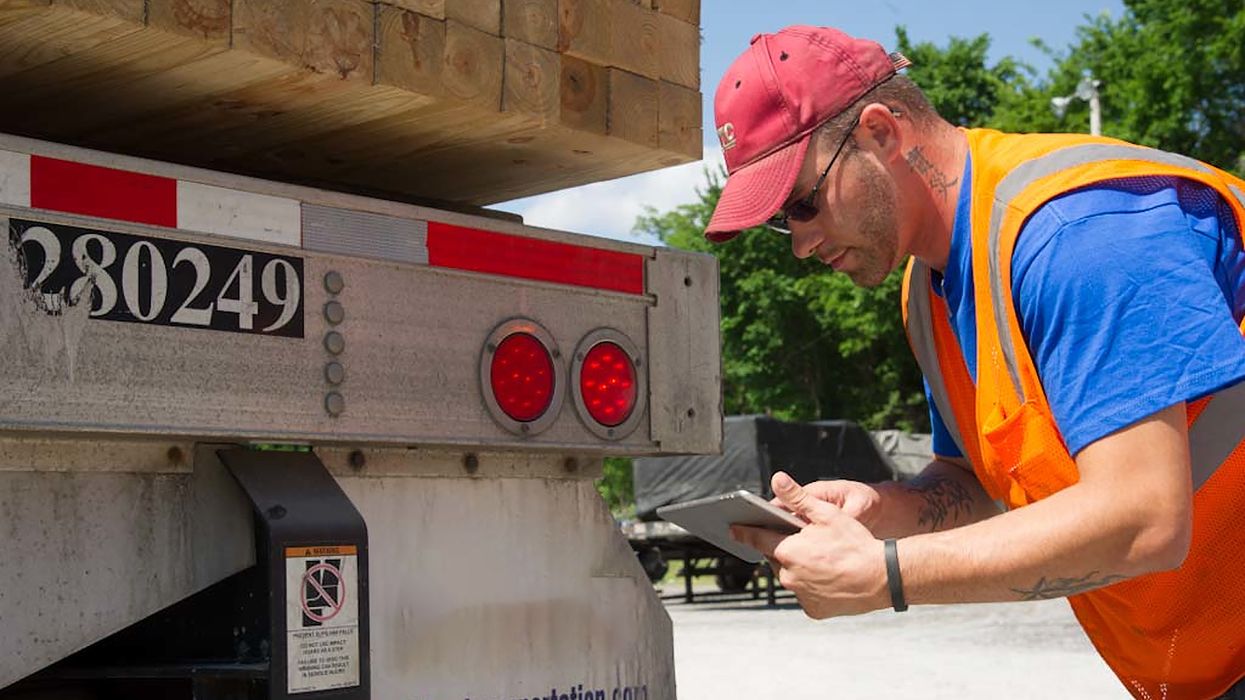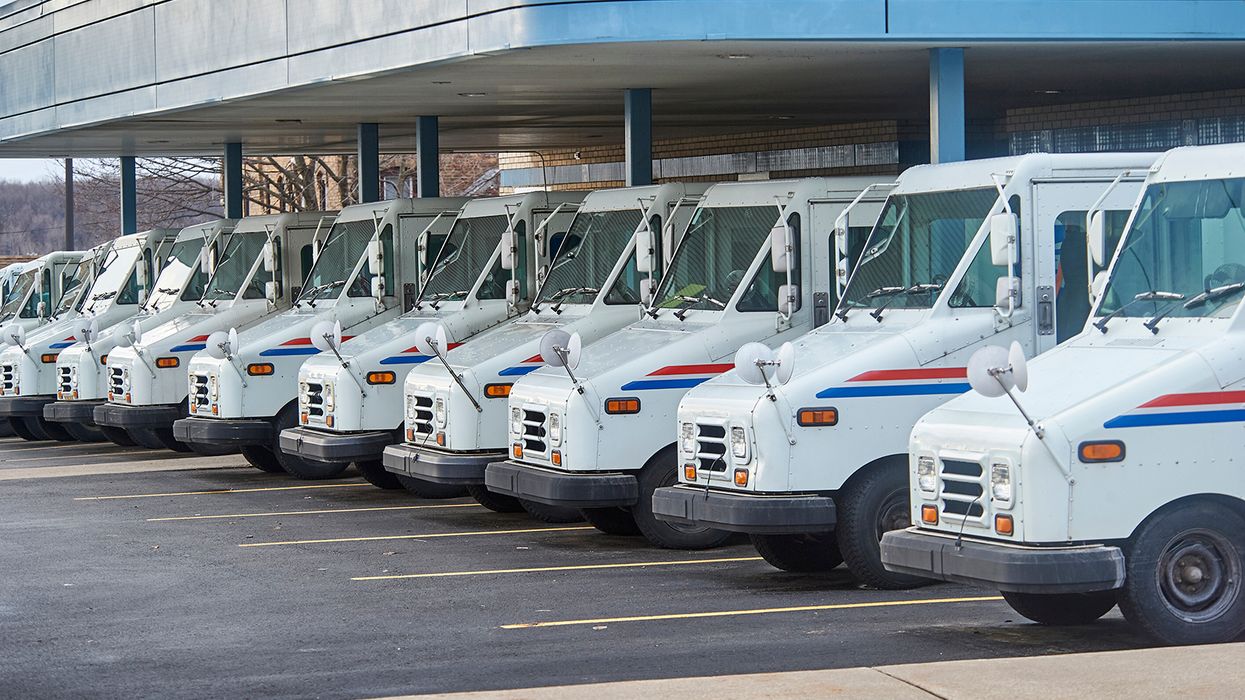DOT Final Rule: Revisions to Civil Penalty Amounts, 2024
This final rule provides the statutorily prescribed 2024 adjustment to civil penalty amounts that may be imposed for violations of certain DOT regulations.
DATES: This rule is effective December 28, 2023, published in the Federal Register December 28, 2023, page 89551.
View final rule.
| §107.329 Maximum penalties. | ||
| Entire section | Revised | View text |
| Appendix A to Subpart D of Part 107—Guidelines for Civil Penalties | ||
| section B, Penalty Increases for Multiple Counts, the second paragraph | Revised | View text |
| §171.1 Applicability of Hazardous Materials Regulations (HMR) to persons and functions. | ||
| (g) | Revised | View text |
| Appendix A to Part 386—Penalty Schedule: Violations of Notices and Orders | ||
| section II and section IV.a. through e. and g. through j. | Revised | View text |
| Appendix B to Part 386—Penalty Schedule: Violations and Monetary Penalties | ||
| (a)(1) through (5), (b), (d) through (f), (g)(1) through (8), (10) through (14), and (16) through (18), (g)(21)(i), (g)(22) and (23), (h), and (i) | Revised | View text |
Previous Text
§107.329 Maximum penalties.
(a) A person who knowingly violates a requirement of the Federal hazardous material transportation law, an order issued thereunder, this subchapter, subchapter C of this chapter, or a special permit or approval issued under this subchapter applicable to the transportation of hazardous materials or the causing of them to be transported or shipped is liable for a civil penalty of not more than $96,624 for each violation, except the maximum civil penalty is $225,455 if the violation results in death, serious illness, or severe injury to any person or substantial destruction of property. There is no minimum civil penalty, except for a minimum civil penalty of $582 for violations relating to training. When the violation is a continuing one, each day of the violation constitutes a separate offense.
(b) A person who knowingly violates a requirement of the Federal hazardous material transportation law, an order issued thereunder, this subchapter, subchapter C of this chapter, or a special permit or approval issued under this subchapter applicable to the design, manufacture, fabrication, inspection, marking, maintenance, reconditioning, repair or testing of a package, container, or packaging component which is represented, marked, certified, or sold by that person as qualified for use in the transportation of hazardous materials in commerce is liable for a civil penalty of not more than $96,624 for each violation, except the maximum civil penalty is $225,455 if the violation results in death, serious illness, or severe injury to any person or substantial destruction of property. There is no minimum civil penalty, except for a minimum civil penalty of $582 for violations relating to training.
Appendix A to Subpart D of Part 107—Guidelines for Civil Penalties
* * * * *
B. Penalty Increases for Multiple Counts
* * * * *
Under the Federal hazmat law, 49 U.S.C. 5123(a), each violation of the HMR and each day of a continuing violation (except for violations relating to packaging manufacture or qualification) is subject to a civil penalty of up to $96,624 or $225,455 for a violation occurring on or after January 6, 2023. As such, PHMSA generally will treat multiple occurrences that violate a single regulatory provision as separate violations and assess the applicable baseline penalty for each distinct occurrence of the violation. PHMSA will generally consider multiple shipments or, in the case of package testers, multiple package designs, to be multiple occurrences; and each shipment or package design may constitute a separate violation.
* * * * *
§171.1 Applicability of Hazardous Materials Regulations (HMR) to persons and functions.
* * * * *
(g) Penalties for noncompliance. Each person who knowingly violates a requirement of the Federal hazardous material transportation law, an order issued under Federal hazardous material transportation law, subchapter A of this chapter, or a special permit or approval issued under subchapter A or C of this chapter is liable for a civil penalty of not more than $96,624 for each violation, except the maximum civil penalty is $225,455 if the violation results in death, serious illness, or severe injury to any person or substantial destruction of property. There is no minimum civil penalty, except for a minimum civil penalty of $582 for a violation relating to training.
Appendix A to Part 386—Penalty Schedule: Violations of Notices and Orders
* * * * *
II. Subpoena
Violation—Failure to respond to Agency subpoena to appear and testify or produce records.
Penalty—minimum of $1,288 but not more than $12,882 per violation.
* * * * *
IV. Out-of-Service Order
a. Violation—Operation of a commercial vehicle by a driver during the period the driver was placed out of service.
Penalty—Up to $2,232 per violation.
(For purposes of this violation, the term “driver” means an operator of a commercial motor vehicle, including an independent contractor who, while in the course of operating a commercial motor vehicle, is employed or used by another person.)
b. Violation—Requiring or permitting a driver to operate a commercial vehicle during the period the driver was placed out of service.
Penalty—Up to $22,324 per violation.
(This violation applies to motor carriers including an independent contractor who is not a “driver,” as defined under paragraph IV(a) above.)
c. Violation—Operation of a commercial motor vehicle or intermodal equipment by a driver after the vehicle or intermodal equipment was placed out-of-service and before the required repairs are made.
Penalty—$2,232 each time the vehicle or intermodal equipment is so operated. (This violation applies to drivers as defined in IV(a) above.)
d. Violation—Requiring or permitting the operation of a commercial motor vehicle or intermodal equipment placed out-of-service before the required repairs are made.
Penalty—Up to $22,324 each time the vehicle or intermodal equipment is so operated after notice of the defect is received.
(This violation applies to intermodal equipment providers and motor carriers, including an independent owner operator who is not a “driver,” as defined in IV(a) above.)
e. Violation—Failure to return written certification of correction as required by the out-of-service order.
* * * * *
g. Violation—Operating in violation of an order issued under §386.72(b) to cease all or part of the employer's commercial motor vehicle operations or to cease part of an intermodal equipment provider's operations, i.e., failure to cease operations as ordered.
Penalty—Up to $32,208 per day the operation continues after the effective date and time of the order to cease.
h. Violation—Operating in violation of an order issued under §386.73.
Penalty—Up to $31,536 per day the operation continues after the effective date and time of the out-of-service order.
i. Violation—Conducting operations during a period of suspension under §386.83 or §386.84 for failure to pay penalties.
Penalty—Up to $18,170 for each day that operations are conducted during the suspension or revocation period.
j. Violation—Conducting operations during a period of suspension or revocation under §385.911, §385.913, §385.1009, or §385.1011 of this subchapter.
Penalty—Up to $31,536 for each day that operations are conducted during the suspension or revocation period.
Appendix B to Part 386—Penalty Schedule: Violations and Monetary Penalties
* * * * *
What are the types of violations and maximum monetary penalties?
(a) * * *
(1) Recordkeeping. A person or entity that fails to prepare or maintain a record required by part 40 of this title and parts 382, subpart A, B, C, D, E, or F, 385, and 390 through 399 of this subchapter, or prepares or maintains a required record that is incomplete, inaccurate, or false, is subject to a maximum civil penalty of $1,496 for each day the violation continues, up to $14,960.
(2) Knowing falsification of records. A person or entity that knowingly falsifies, destroys, mutilates, or changes a report or record required by parts 382, subpart A, B, C, D, E, or F, 385, and 390 through 399 of this subchapter, knowingly makes or causes to be made a false or incomplete record about an operation or business fact or transaction, or knowingly makes, prepares, or preserves a record in violation of a regulation order of the Secretary is subject to a maximum civil penalty of $14,960 if such action misrepresents a fact that constitutes a violation other than a reporting or recordkeeping violation.
(3) Non-recordkeeping violations. A person or entity that violates part 382, subpart A, B, C, D, E, or F, 385, and 390 through 399 of this subchapter, except a recordkeeping requirement, is subject to a civil penalty not to exceed $18,170 for each violation.
(4) Non-recordkeeping violations by drivers. A driver who violates parts 382, subpart A, B, C, D, E, or F, 385, and 390 through 399 of this subchapter, except a recordkeeping violation, is subject to a civil penalty not to exceed $4543.
(5) Violation of 49 CFR 392.5. A driver placed out of service for 24 hours for violating the alcohol prohibitions of 49 CFR 392.5(a) or (b) who drives during that period is subject to a civil penalty not to exceed $3740 for a first conviction and not less than $7481 for a second or subsequent conviction.
* * * * *
(b) Commercial driver’s license (CDL) violations. Any employer, employee, medical review officer, or service agent who violates any provision of 49 CFR part 382, subpart G, or any person who violates 49 CFR part 383, subpart B, C, E, F, G, or H, is subject to a civil penalty not to exceed $6,755; except:
(1) A CDL-holder who is convicted of violating an out-of-service order shall be subject to a civil penalty of not less than $3740 for a first conviction and not less than $7481 for a second or subsequent conviction;
(2) An employer of a CDL-holder who knowingly allows, requires, permits, or authorizes an employee to operate a CMV during any period in which the CDL-holder is subject to an out-of-service order, is subject to a civil penalty of not less than $6,755 or more than $37,400; and
(3) An employer of a CDL-holder who knowingly allows, requires, permits, or authorizes that CDL-holder to operate a CMV in violation of a Federal, State, or local law or regulation pertaining to railroad-highway grade crossings is subject to a civil penalty of not more than $19,389.
* * * * *
(d) Financial responsibility violations. A motor carrier that fails to maintain the levels of financial responsibility prescribed by part 387 of this subchapter or any person (except an employee who acts without knowledge) who knowingly violates the rules of part 387, subparts A and B, is subject to a maximum penalty of $19,933. Each day of a continuing violation constitutes a separate offense.
(e) Violations of the Hazardous Materials Regulations (HMRs) and safety permitting regulations found in subpart E of part 385 of this subchapter. This paragraph (e) applies to violations by motor carriers, drivers, shippers and other persons who transport hazardous materials on the highway in commercial motor vehicles or cause hazardous materials to be so transported.
(1) All knowing violations of 49 U.S.C. chapter 51 or orders or regulations issued under the authority of that chapter applicable to the transportation or shipment of hazardous materials by commercial motor vehicle on the highways are subject to a civil penalty of not more than $96,624 for each violation. Each day of a continuing violation constitutes a separate offense.
(2) All knowing violations of 49 U.S.C. chapter 51 or orders or regulations issued under the authority of that chapter applicable to training related to the transportation or shipment of hazardous materials by commercial motor vehicle on the highways are subject to a civil penalty of not less than $582 and not more than $96,624 for each violation.
(3) All knowing violations of 49 U.S.C. chapter 51 or orders, regulations, or exemptions under the authority of that chapter applicable to the manufacture, fabrication, marking, maintenance, reconditioning, repair, or testing of a packaging or container that is represented, marked, certified, or sold as being qualified for use in the transportation or shipment of hazardous materials by commercial motor vehicle on the highways are subject to a civil penalty of not more than $96,624 for each violation.
(4) Whenever regulations issued under the authority of 49 U.S.C. chapter 51 require compliance with the FMCSRs while transporting hazardous materials, any violations of the FMCSRs will be considered a violation of the HMRs and subject to a civil penalty of not more than $96,624.
(5) If any violation subject to the civil penalties set out in paragraphs (e)(1) through (4) of this appendix results in death, serious illness, or severe injury to any person or in substantial destruction of property, the civil penalty may be increased to not more than $225,455 for each offense.
(f) Operating after being declared unfit by assignment of a final “unsatisfactory” safety rating. (1) A motor carrier operating a commercial motor vehicle in interstate commerce (except owners or operators of commercial motor vehicles designed or used to transport hazardous materials for which placarding of a motor vehicle is required under regulations prescribed under 49 U.S.C. chapter 51) is subject, after being placed out of service because of receiving a final “unsatisfactory” safety rating, to a civil penalty of not more than $32,208 (49 CFR 385.13). Each day the transportation continues in violation of a final “unsatisfactory” safety rating constitutes a separate offense.
(2) A motor carrier operating a commercial motor vehicle designed or used to transport hazardous materials for which placarding of a motor vehicle is required under regulations prescribed under 49 U.S.C. chapter 51 is subject, after being placed out of service because of receiving a final “unsatisfactory” safety rating, to a civil penalty of not more than $96,624 for each offense. If the violation results in death, serious illness, or severe injury to any person or in substantial destruction of property, the civil penalty may be increased to not more than $225,455 for each offense. Each day the transportation continues in violation of a final “unsatisfactory” safety rating constitutes a separate offense.
(g) * * *
(1) A person who operates as a motor carrier for the transportation of property in violation of the registration requirements of 49 U.S.C. 13901 is liable for a minimum penalty of $12,882 per violation.
(2) A person who knowingly operates as a broker in violation of registration requirements of 49 U.S.C 13904 or financial security requirements of 49 U.S.C 13906 is liable for a penalty not to exceed $12,882 for each violation.
(3) A person who operates as a motor carrier of passengers in violation of the registration requirements of 49 U.S.C. 13901 is liable for a minimum penalty of $32,208 per violation.
(4) A person who operates as a foreign motor carrier or foreign motor private carrier of property in violation of the provisions of 49 U.S.C. 13902(c) is liable for a minimum penalty of $12,882 per violation.
(5) A person who operates as a foreign motor carrier or foreign motor private carrier without authority, outside the boundaries of a commercial zone along the United States-Mexico border, is liable for a maximum penalty of $17,717 for an intentional violation and a maximum penalty of $44,294 for a pattern of intentional violations.
(6) A person who operates as a motor carrier or broker for the transportation of hazardous wastes in violation of the registration provisions of 49 U.S.C. 13901 is liable for a minimum penalty of $25,767 and a maximum penalty of $51,533 per violation.
(7) A motor carrier or freight forwarder of household goods, or their receiver or trustee, that does not comply with any regulation relating to the protection of individual shippers, is liable for a minimum penalty of $1,937 per violation.
(8) A person—
(i) Who falsifies, or authorizes an agent or other person to falsify, documents used in the transportation of household goods by motor carrier or freight forwarder to evidence the weight of a shipment; or
(ii) Who charges for services which are not performed or are not reasonably necessary in the safe and adequate movement of the shipment is liable for a minimum penalty of $3,879 for the first violation and $9,695 for each subsequent violation.
* * * * *
(10) A person who offers, gives, solicits, or receives transportation of property by a carrier at a different rate than the rate in effect under 49 U.S.C. 13702 is liable for a maximum penalty of $193,890 per violation. When acting in the scope of his/her employment, the acts or omissions of a person acting for or employed by a carrier or shipper are considered the acts or omissions of that carrier or shipper, as well as of that person.
(11) Any person who offers, gives, solicits, or receives a rebate or concession related to motor carrier transportation subject to jurisdiction under subchapter I of 49 U.S.C. chapter 135, or who assists or permits another person to get that transportation at less than the rate in effect under 49 U.S.C. 13702, commits a violation for which the penalty is $387 for the first violation and $484 for each subsequent violation.
(12) A freight forwarder, its officer, agent, or employee, that assists or willingly permits a person to get service under 49 U.S.C. 13531 at less than the rate in effect under 49 U.S.C. 13702 commits a violation for which the penalty is up to $971 for the first violation and up to $3,879 for each subsequent violation.
(13) A person who gets or attempts to get service from a freight forwarder under 49 U.S.C. 13531 at less than the rate in effect under 49 U.S.C. 13702 commits a violation for which the penalty is up to $971 for the first violation and up to $3,879 for each subsequent violation.
(14) A person who knowingly authorizes, consents to, or permits a violation of 49 U.S.C. 14103 relating to loading and unloading motor vehicles or who knowingly violates subsection (a) of 49 U.S.C. 14103 is liable for a penalty of not more than $19,389 per violation.
* * * * *
(16) A person required to make a report to the Secretary, answer a question, or make, prepare, or preserve a record under part B of subtitle IV, title 49, U.S.C., or an officer, agent, or employee of that person, is liable for a minimum penalty of $1,288 and for a maximum penalty of $9,695 per violation if it does not make the report, does not completely and truthfully answer the question within 30 days from the date the Secretary requires the answer, does not make or preserve the record in the form and manner prescribed, falsifies, destroys, or changes the report or record, files a false report or record, makes a false or incomplete entry in the record about a business-related fact, or prepares or preserves a record in violation of a regulation or order of the Secretary.
(17) A motor carrier, water carrier, freight forwarder, or broker, or their officer, receiver, trustee, lessee, employee, or other person authorized to receive information from them, who discloses information identified in 49 U.S.C. 14908 without the permission of the shipper or consignee is liable for a maximum penalty of $3,879.
(18) A person who violates a provision of part B, subtitle IV, title 49, U.S.C., or a regulation or order under part B, or who violates a condition of registration related to transportation that is subject to jurisdiction under subchapter I or III of chapter 135, or who violates a condition of registration of a foreign motor carrier or foreign motor private carrier under section 13902, is liable for a penalty of $971 for each violation if another penalty is not provided in 49 U.S.C. chapter 149.
* * * * *
(21) * * *
(i) Who knowingly and willfully fails, in violation of a contract, to deliver to, or unload at, the destination of a shipment of household goods in interstate commerce for which charges have been estimated by the motor carrier transporting such goods, and for which the shipper has tendered a payment in accordance with part 375, subpart G, of this subchapter, is liable for a civil penalty of not less than $19,389 for each violation. Each day of a continuing violation constitutes a separate offense.
* * * * *
(22) A broker for transportation of household goods who makes an estimate of the cost of transporting any such goods before entering into an agreement with a motor carrier to provide transportation of household goods subject to FMCSA jurisdiction is liable to the United States for a civil penalty of not less than $14,960 for each violation.
(23) A person who provides transportation of household goods subject to jurisdiction under 49 U.S.C. chapter 135, subchapter I, or provides broker services for such transportation, without being registered under 49 U.S.C. chapter 139 to provide such transportation or services as a motor carrier or broker, as the case may be, is liable to the United States for a civil penalty of not less than $37,400 for each violation.
* * * * *
(h) Copying of records and access to equipment, lands, and buildings. A person subject to 49 U.S.C. chapter 51 or a motor carrier, broker, freight forwarder, or owner or operator of a commercial motor vehicle subject to part B of subtitle VI of title 49 U.S.C. who fails to allow promptly, upon demand in person or in writing, the Federal Motor Carrier Safety Administration, an employee designated by the Federal Motor Carrier Safety Administration, or an employee of a MCSAP grant recipient to inspect and copy any record or inspect and examine equipment, lands, buildings, and other property, in accordance with 49 U.S.C. 504(c), 5121(c), and 14122(b), is subject to a civil penalty of not more than $1496 for each offense. Each day of a continuing violation constitutes a separate offense, except that the total of all civil penalties against any violator for all offenses related to a single violation shall not exceed $14,960.
(i) Evasion. A person, or an officer, employee, or agent of that person:
(1) Who by any means tries to evade regulation of motor carriers under title 49, United States Code, chapter 5, chapter 51, subchapter III of chapter 311 (except sections 31138 and 31139) or section 31302, 31303, 31304, 31305(b), 31310(g)(1)(A), or 31502, or a regulation in subtitle B, chapter I, subchapter C of this title, or this subchapter, issued under any of those provisions, shall be fined at least $2577 but not more than $6247 for the first violation and at least $3219 but not more than $9,652 for a subsequent violation.
(2) Who tries to evade regulation under part B of subtitle IV, title 49, U.S.C., for carriers or brokers is liable for a penalty of at least $2,577 for the first violation or at least $6,247 for a subsequent violation.














































